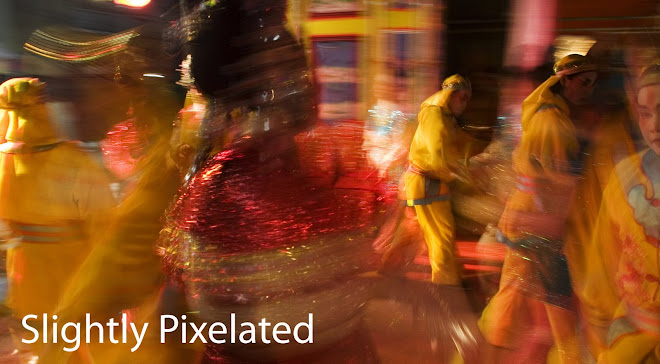
The Silom area of Bangkok resembled a war zone last week as troops, clad in full combat gear and toting a daunting array of weapons, patrolled along pavements in front of shops, banks and go-go bars in one of the city's busiest commercial districts.
In surreal scenes, tourists, journalists, office workers, hawkers and hookers took turns to squeeze past coils of razor wire and pose for pictures with smiling soldiers.
Streams of sympathisers handed food and drink to embarrassed-looking troops who at times seemed equally laden with guns and riot gear as with shopping bags brimming with gifts. Some concerned office workers at a nearby hotel provided support in the form of fresh underwear for security forces, many of whom were sleeping rough in car parks and side streets.
The move to position troops on Silom road is an indication of the escalating levels of tension here and of the Thai government's desperation as it struggles to maintain a semblance of control while seeking a solution to this deepening crisis.
The other side of a busy intersection at the top end of Silom, opposite a MacDonalds and a five star hotel, Red Shirt anti-government protesters dug themselves in - creating a de-facto front line just meters from government troops. Clusters of onlookers, often snatching pictures for posterity, watched as the protesters erected a barricade of barbed wire, tires and sharpened bamboo poles.

The Red Shirts, who have been protesting in Bangkok for over a month now, were again thumbing their noses at government power; making it clear they would not be dispersed without a fight.
As military helicopters wheeled overhead and as rumours of an imminent crackdown came and went throughout the week, protesters could be seen diligently sharpening hundreds of bamboo spears apparently in preparation for battle. Local newspapers reported that the red shirts had stockpiled war weapons and were making bombs filled with concentrated acid.
With each passing day, like a bizarre urban art installation, the Red Shirts' makeshift barricade became more elaborate, more permanent and more impenetrable.
Red Shirt guards, dressed in black uniforms and often wearing caps emblazoned with red stars, patrolled the outer perimeter of the barricade while protesters clambered atop the ramshackle construction to shout slogans, wave flags, pose for photos, hurl insults and occasionally engage in skirmishes with pro-government supporters.
With each passing day the mood grew darker. Angry mobs took to the streets on Silom, venting their fury on anyone suspected of being a Red Shirt. Soldiers intervened to save several hapless individuals from being lynched. Scuffles broke out. Bottles, rocks and bolts were hurled across the front lines.
On Thursday the situation took a dramatic turn for the worse. The mounting tensions of previous days culminated in a brutal grenade attack that saw five explosions rip into crowds of pro-government protesters and innocent by-standers during the evening rush hour at the upper end of Silom. Three people were killed and eighty seven injured.
The attack, the origins of which are still unclear, was a watershed moment. It was clear that if neither side stood down the situation could quickly escalate into something more serious and possibly more widespread.
Two days earlier reports that a group of Red Shirts in the northeastern province of Khon Kaen had brazenly seized a train carrying seventy soldiers and military equipment served as a reminder that the Red Shirts are capable of extending their struggle beyond the capital.
Since Thursday's attack, the situation has entered a phase of relative calm, with both sides apparently pausing to consider their strategies. After a tense stand off, the Red Shirts agreed to pull their supporters 100 meters back from their barricades, while the police ensured that pro-government supporters were not allowed to gather close to Red Shirt positions.
As I write, Thailand is holding its breath, relieved at the hiatus in the street fighting but fearful for what the future may hold. The battle lines are clearly drawn. We are waiting to see if Thailand's leaders will choose the course of compromise or conflict.

No comments:
Post a Comment